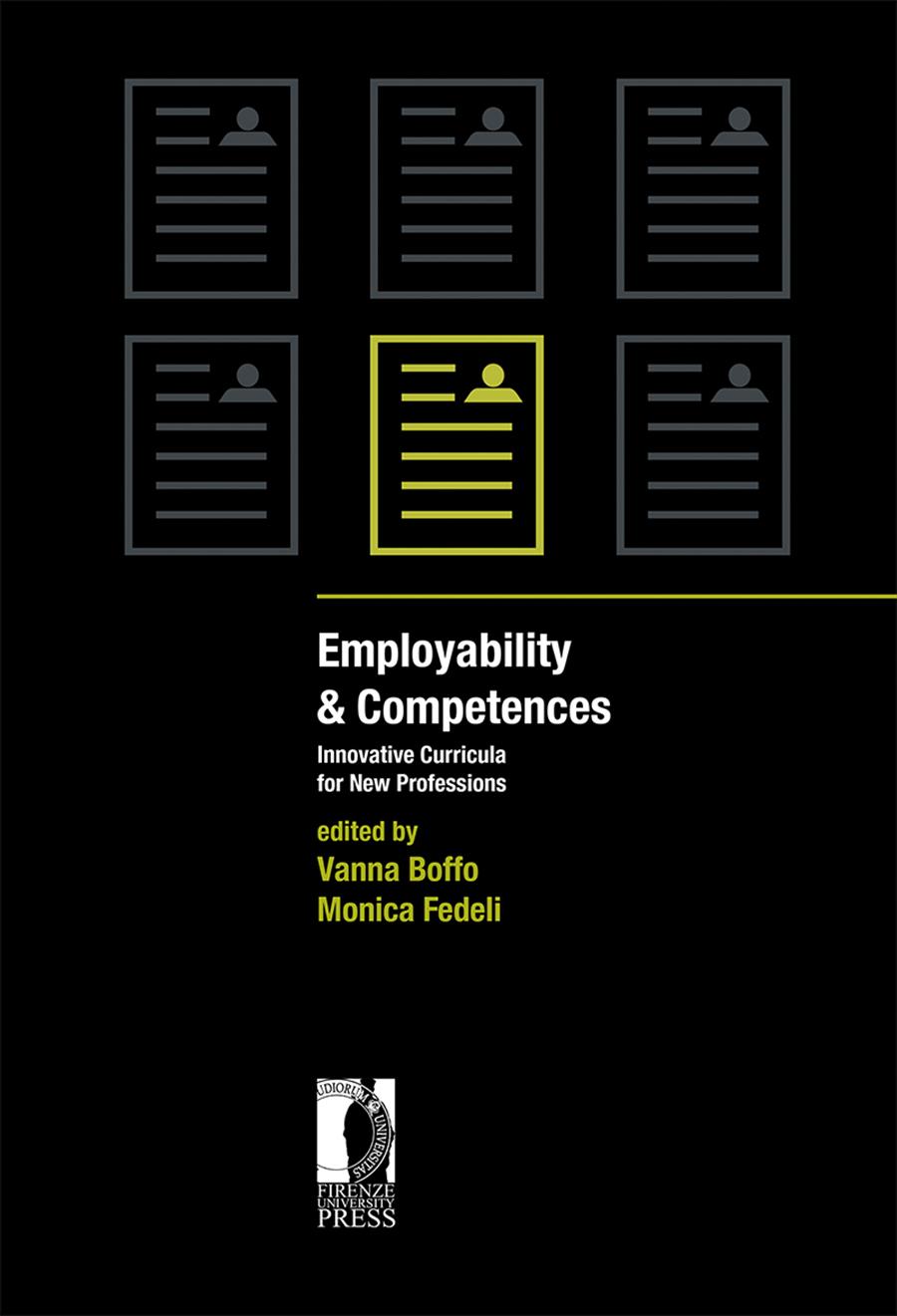- Employability & Competences
- Edited by Vanna Boffo, Monica Fedeli
Educators in Training and Writing: Perception, Experiences, Problems
- Patrizia Sposetti
- © 2018 Author(s) |
- CC BY 4.0
- DOI: 10.36253/978-88-6453-672-9.33
This paper focuses on the relationships between academic, professional and personal writing among Italian university students. The specific focus is on educators trained as part of the degree course in Education and Training Science. A solid, evident link exists between educational professions and writing practices, as shown by the over two decades of research on this topic: writing facilitates the objectivization needed for sharing and, at the same time, makes it possible to distance oneself from the effort involved in the teaching professions
- Keywords:
- academic didactics,
- educational writing,
- professional writing,
- educational professions,
- active learning,
Sapienza University of Rome, Italy
- Baudet C. and Rey V. 2012, De l’écrit universitaire à l’écrit professionnel: comment favoriser le passage de l’écriture heuristique et scientifique à l’écriture professionnelle?, «Scripta», Belo Horizonte, XVI (30), 169-193.
- Bazerman C. and Russel D.R. (eds.) 2003, Writing Selves/ Writing Societies. Research from Activity Perspectives, The WAC Clearinghouse Colorado State University, Fort Collins.
- Bereiter C. 1980, Development in writing, in Gregg L.W. and Steinberg E.R. (eds.), Cognitive Processes in Writing, Erlbaum, Hillsdale, 73-93.
- Bereiter C. and Scardamalia M. 1987, The Psychology of Written Composition, Lawrence Erlbaum Associates, Mahwah, New York.
- Biffi E. 2014, Le scritture professionali del lavoro educativo, FrancoAngeli, Milano.
- Brusco S., Lucisano P., Salerni A. and Sposetti P. 2014, Le scritture degli studenti laureati: una analisi delle prove di accesso alla Laurea magistrale in Pedagogia e Scienze dell’educazione e della formazione della “Sapienza”, in Colombo A. and Pallotti G. (eds.), L’italiano per capire, Aracne, Roma, 47-165.
- Chartrand S. and Blaser C. 2006, Fonction épistémique des genres disciplinaires scolaires: prolégomènes à un champ de recherches, in Schneuwly B. and Thévenaz T. (eds.), Analyses des objets enseignés. Le cas du français, De Boeck, Brussels, 179-194.
- Cros F. 2011, Pourquoi l’écriture est-elle nécessaire aux enseignants?, «Les Cahier d’Éduction & Devenir», 10, 1-5.
- Cros F. 2014, Un questionnement qui se structure, in Morisse M. and Lafortune L. (eds.), L’écriture réflexive. Objet de recherche et de professionalization, Presses de L’université du Québec, Québec.
- Fiamberti C. 2006, La documentazione professionale dall’autoriflessione alla progettualità, «Rivista di servizio sociale», 2.
- Ganobscik-Williams L. 2006, Teaching Academic Writing in UK Higher Education: Theories, Practices and Model, Palgrave Macmillan, London.
- Halliday M.A.K. 1975, Learning how to mean: Explorations in the development of language, Edward Arnold, London.
- Halliday M.A.K. 1993, Towards a Language-Based Theory of Learning, «Linguistics and education», 5, 93-116.
- Ivanic R., Edwards R., Barton D., Martin-Jones M., Fowler Z., Hughes B., Mannion G., Miller K., Satchwell C. and Smith J. 2009, Improving learning in college: rethinking literacies across the curriculum, Routledge, London.
- Lea M. and Jones S. 2011, Digital literacies in higher education: exploring textual and technological practice, «Studies in Higher Education», XXXVI (4), 377-393.
- Lillis T. and Scott M. 2007, Defining academic literacies research: issues of epistemology, ideology and strategy, «Journal of Applied Linguistics», IV (1), 5-32.
- Mortari L. 2007, Apprendere dall’esperienza. Il pensare riflessivo nella formazione, Carocci, Roma.
- Pollet M.C. 2001, Pour une didactique des discours universitaires, De Boeck University, Brussels.
- Pollet M.C. 2004, Appropriation et écriture de savoirs chez des étudiants de première année. Une voie difficile entre stockage et elaboration, «Pratiques», Metz, 121-122, 81-92.
- Salerni A., Sposetti P. and Szpunar G. 2013, La narrazione scritta come elemento di valutazione del tirocinio universitario – Narrative writing as an evaluation methodology of University Internship Program, «RPD, Ricerche di Pedagogia e Didattica – Journal of Theories and Research in Education», VIII (2), 9-26.
- Sposetti P. 2011, Quante e quali scritture professionali in educazione, «Italiano LinguaDue», III (1), 261-271.
- Reuter Y. 2004, Analyser les problèmes de l’écriture de recherche en formation, «Pratiques», 121-122, Les écrits universitaires, June 2004, Metz, CRESEF, 9-27.
- Starke-Meyerring D., Paré A., Artemeva N., Horne M. and Yousoubova L. 2011, Writing in Knowledge Societies, Parlor Press, Anderson.
Chapter Information
Chapter Title
Educators in Training and Writing: Perception, Experiences, Problems
Authors
Patrizia Sposetti
Language
English
DOI
10.36253/978-88-6453-672-9.33
Peer Reviewed
Publication Year
2018
Copyright Information
© 2018 Author(s)
Content License
Metadata License
Bibliographic Information
Book Title
Employability & Competences
Book Subtitle
Innovative Curricula for New Professions
Editors
Vanna Boffo, Monica Fedeli
Peer Reviewed
Number of Pages
510
Publication Year
2018
Copyright Information
© 2018 Author(s)
Content License
Metadata License
Publisher Name
Firenze University Press
DOI
10.36253/978-88-6453-672-9
ISBN Print
978-88-6453-671-2
eISBN (pdf)
978-88-6453-672-9
eISBN (xml)
978-88-9273-119-6
Series Title
Studies on Adult Learning and Education
Series ISSN
2704-596X
Series E-ISSN
2704-5781
